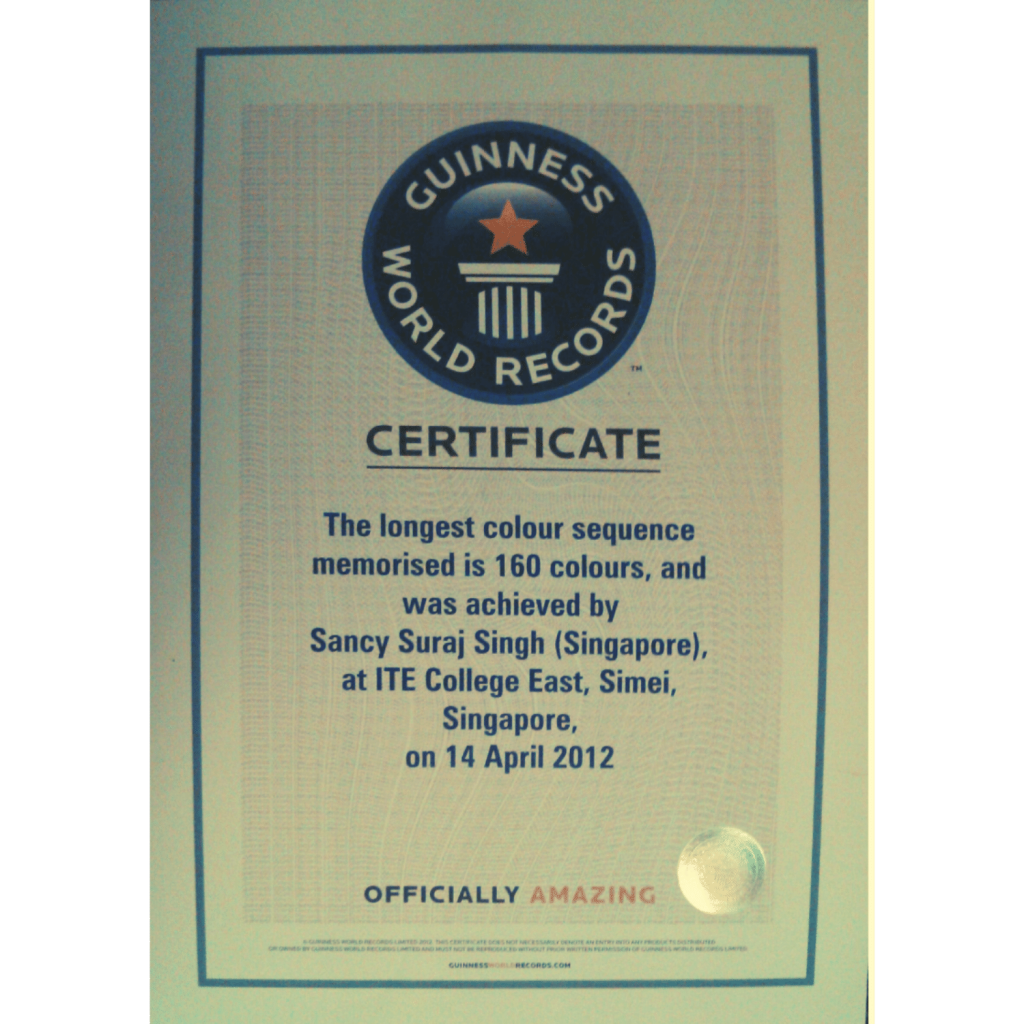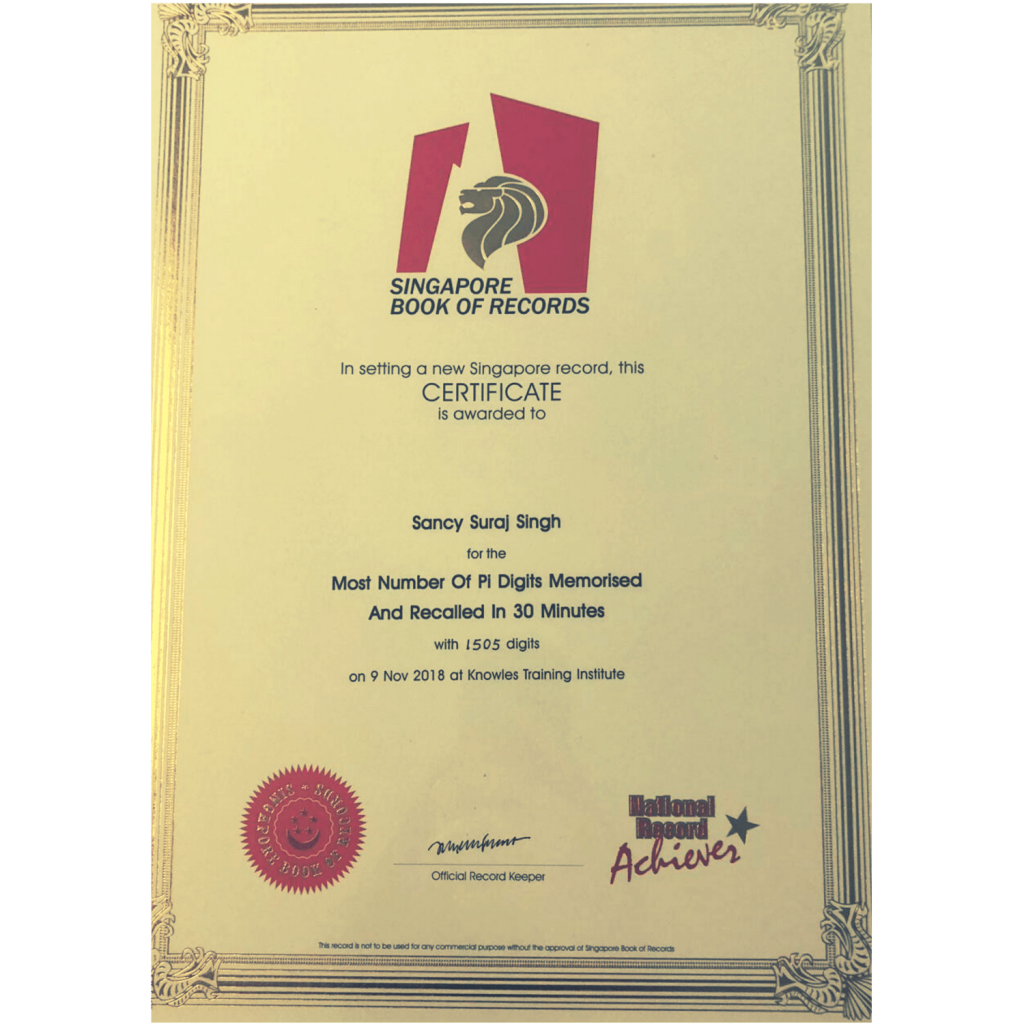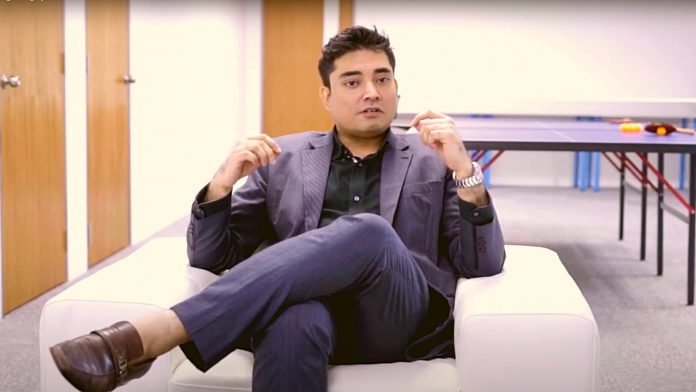In recent years Singapore has produced several top memory athletes, one of them is the world record holder Sancy Suraj. He made himself a name for the first Singaporean to get a World Record in a memory category in 2011. We spoke to Sancy about his memory journey, training and goals.
How did you get into memory sports?
I first heard about advance memory techniques when I was in university. I applied the techniques to my studies and my result improved. I was really good at using the techniques. I then heard about the World Memory Championships, which is the Olympics equivalent for memory sport. The world’s best mnemonist from all over the world take part in a 3 day event to push their memory to their absolute limit. I wanted to compete myself and in 2011 after graduating from university, I represented Singapore at the World Memory Championships held in Guangzhou, China.
What did you memorize at the World Memory Championships?
At the World Memory Championships I memorized 176 abstract images in 15 minutes, 98 words in 15 minutes, 480 numbers in 60 minutes, 51 names, and faces in 15 minutes, 460 binary digits in 30 minutes.
How did you memorize all of that?
I use a variety of memory techniques like the Roman Room Method, Journey Method and the Major System. There are techniques to everything; like writing, reading or even riding a bike. There are techniques to memorization and recall as well. I have practiced using these techniques over and over again to the point that I have refined it. Ever step is perfected, without any flaw, and because of this when I apply these memory techniques to memorize a piece of information I never forget.
What is the Roman Room Technique?
The Roman Room Technique, also known as The Method of Loci, is an ancient memory technique, about 3000 years old. It is a memory technique that is used to memorize vast amount of information. Like thousands of numbers in a row. The way the technique works is that you associate new information with objects that you already remember in a room. Generally, a Roman Room uses a room and 10 or more objects inside that room.
Simonides is the known inventor of the Roman Room. During his time, many people memorized long poems and would recite them at social gatherings. They needed memory methods that allowed them to increase memory. He taught this memory technique to other poets, and eventually, the same technique was used for memorizing long stories, speeches, numbers, lists, poems, music and virtually every other type of memorization. Many prominent historical figures used the Roman Room Technique to enhance memory. Aristotle writes about the Roman Room technique in some of his surviving papers. Also, eminent monks and pastors such as Thomas Aquinas used The Roman Room technique and other memory mnemonics. Aquinas was said to have memorized every book he ever read using memory mnemonics.
What are your memory records?
I held the Guinness World Record for the Longest Colour Sequence Memorised and currently own the Singapore Book of Records for the most number of pi digits memorized and recited. I memorized and recited 1505 digits of pi in 30 minutes. For the Longest Colour Sequence Memorised record I memorized 160 colours in 5 minutes and 20 seconds.

Why do you like memorizing?
I like pushing myself. When it comes to memorizing, it is me vs my brain’s ability to quickly store information. I also like learning new things, and memory is part of learning. When I come across a new piece of information, I love the fact that I can use my memory techniques to help me remember. The more I learn, the more i remember and overtime, I just build a massive cloud of knowledge that is stored in my brain.
Do you remember everything that has happened to you, or every book that you have ever read?
No. That is a misconception that people have. I do not have a photographic memory. So I do not remember everything that has ever happened in my life or every books that I have read. My brain is not wired in such a way. People that remember their entire past have highly superior autobiographical memory. That is something you cannot learn. Most of them are born that way. For me to remember something, I have to actively encode the information as a result I do not remember everything I read as it will use a huge amount of brain power and time. In my professional life, I only memorize things that a relevant to me, like client’s bio, names and faces of people I meet, facts, key points from books but never the whole book at it is redundant. I could but memorising an entire book, word by word does not make sense to me as most books are filled with fluff. I rather take key pointers from a book and memorize that.
Can anyone do what you do?
Yes and no. I wasn’t born with this ability. I had to work on it. Anyone can memorise like I do; there are essentially 2 steps. The first is to learn memory techniques and the second step is practice. Skill comes from consistent practice. It is as simple as that. What separates me from the rest is that I’m always practicing. On the flip side, the unfortunate truth is that most people tend to give up easily. They are not consistent and disciplined in their practice, so achieving feats like memorizing thousands of digits of pi is unattainable to them. This happens not only in what i’m speaking about, memorizing, but in sports and music as well. A soccer player that does not put in enough hours to get signed to an EPL club, a musician that does not practice his or her craft enough to play with their local orchestra.

What’s been your biggest takeaway from your experiences from learning memory techniques?
Not fearing memorization. Not having the fear of not remembering something. When i see something that i need to commit to memory, i can easily do that. It is like having a super power.
Sancy Suraj. Sancy Suraj Singh. Memory Athlete. Singapore Memory Athlete. Sancy Suraj. Sancy Suraj Singh from Singapore. Mr.Sancy. Sancy Suraj.




